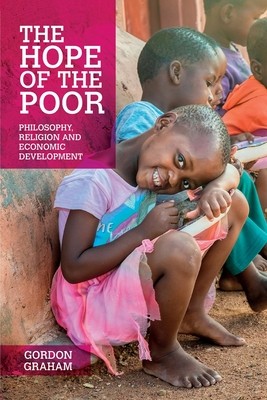
- We will send in 10–14 business days.
- Author: Gordon Graham
- Publisher: Imprint Academic
- ISBN-10: 1788361016
- ISBN-13: 9781788361019
- Format: 15.6 x 23.4 x 1.3 cm, minkšti viršeliai
- Language: English
- SAVE -10% with code: EXTRA
Reviews
Description
Is economic development the best hope for the world's poor? A great many individuals, governments and organizations think the obvious answer is 'Yes', the only issue being about how development can best be achieved. In recent decades some powerful voices from economics and anthropology have taken issue with this widespread consensus, and this book aims to add a philosophical dimension to the debate. Just who are 'the poor', and what should they hope for? Is the best hope of having a worthwhile life any different for the poor than it is for the rich?
Drawing on Aristotle, Bacon, Hume, Reid, Marx and Nietzsche, as well as contemporary authors such as Amartya Sen, Martha Nussbaum and Tim Ingold, Gordon Graham argues in favour of replacing quantitative assessments of wealth and poverty with a qualitative account of the ways in which human lives can be enriched or impoverished. The final chapter explores the connection between economic and political development and religious ways of thinking.
EXTRA 10 % discount with code: EXTRA
The promotion ends in 23d.11:32:49
The discount code is valid when purchasing from 10 €. Discounts do not stack.
- Author: Gordon Graham
- Publisher: Imprint Academic
- ISBN-10: 1788361016
- ISBN-13: 9781788361019
- Format: 15.6 x 23.4 x 1.3 cm, minkšti viršeliai
- Language: English English
Is economic development the best hope for the world's poor? A great many individuals, governments and organizations think the obvious answer is 'Yes', the only issue being about how development can best be achieved. In recent decades some powerful voices from economics and anthropology have taken issue with this widespread consensus, and this book aims to add a philosophical dimension to the debate. Just who are 'the poor', and what should they hope for? Is the best hope of having a worthwhile life any different for the poor than it is for the rich?
Drawing on Aristotle, Bacon, Hume, Reid, Marx and Nietzsche, as well as contemporary authors such as Amartya Sen, Martha Nussbaum and Tim Ingold, Gordon Graham argues in favour of replacing quantitative assessments of wealth and poverty with a qualitative account of the ways in which human lives can be enriched or impoverished. The final chapter explores the connection between economic and political development and religious ways of thinking.


Reviews